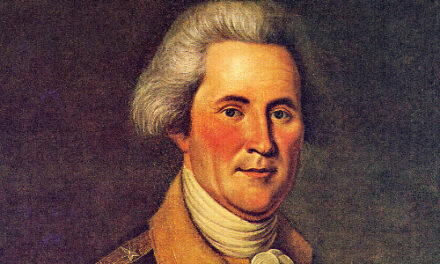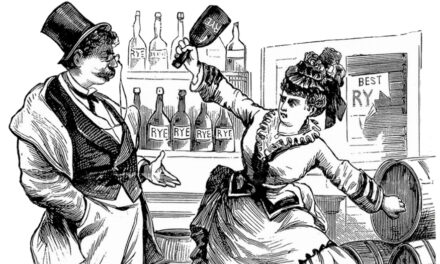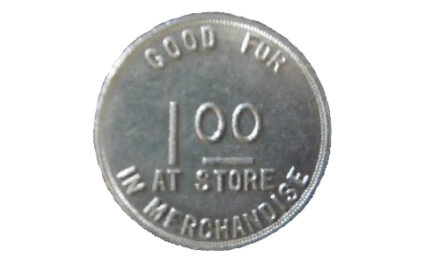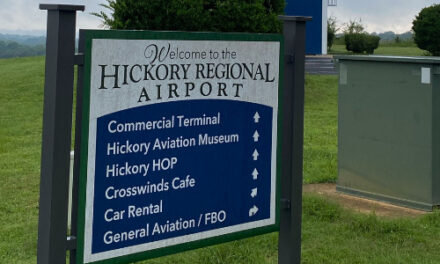
You never know about oral histories. Stories as folks remembered them are probably true, in a qualified sense. But a few questions need to be asked. Is the account from a first person experience or an observation. Perspective makes a lot of difference.
Also, when was the account written down? Immediately? Years later? As we get older, we tend to make the players better or worse, sometimes dependent on subsequent interactions. Objectivity is not usually a human strength.
All this qualification comes to remind all of us who came after a story is told that it may or may not be true. For example…
A chronicler of Hickory history, E.L. Shuford, once reported a story about the fact that the railroad station might just have easily been in Longview as Hickory. That’s important because had such a change occurred, Hickory would not be the town we know today. The stop along the train line really put Hickory on the map. Without it, no Union Square. No Union Square, no commercial district and not much of a town to draw people to it.
Here’s how it supposedly happened, as told to Shuford by George Bisanar. When the rail line came through, just prior to the Civil War, the Western NCRR folks were looking for a station. The full plan was to route the tracks to Morganton, a town by that point over 80 years old. However, the war came and stopped construction. The railroad folks abandoned construction in eastern Burke County, which made the terminus in Catawba County the last populated stop on the line.
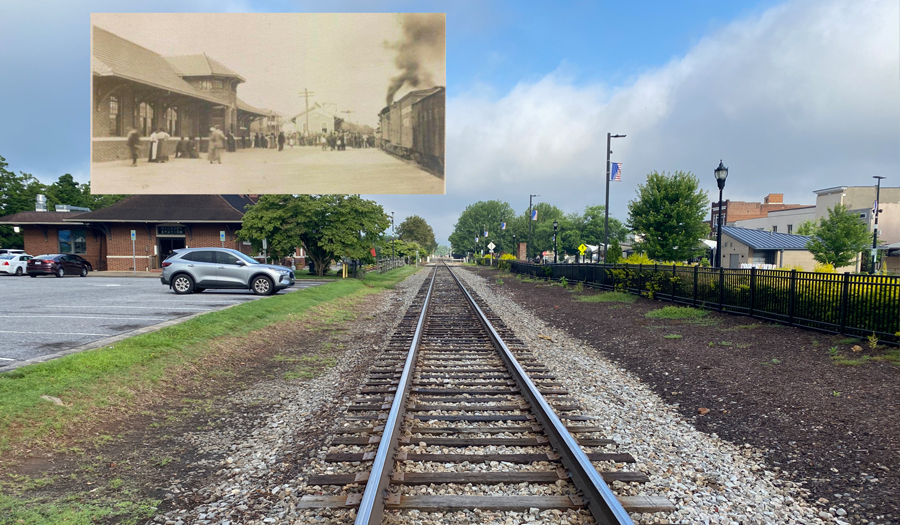
Photo: The rail line, looking west to where the center of a town might have been. Inset: the 1912 station built where it remains today.
In Longview, railroad officials wanted to build a depot, but the man who owned the land was adamant, saying he “had nothing to give the damned railroad.” So they looked elsewhere. Back up the line, Henry Robinson agreed to give them the land for a terminal and the station was built, not where it is now (I’m talking about the restaurant) but a hundred feet or so west, in the vicinity of Duke’s (another restaurant).
Years later, the town of Hickory Tavern, later dropping the last word from its name (but for a short time was known as Hickory Station) quibbled with the railroad folks about the location of the depot. The case went to court. While the railroad had the deed Henry Robinson gave them, no one ever thought to record it, thus making Western NCRR ownership of the property upon which they had constructed several buildings invalid. Imagine building a house on land you don’t own.
Head of the railroad, Colonel Andrews threatened to reroute the track and “run it up the main sidewalk” if a settlement could not be reached. Tempers flared until Dolph Shuford stepped in, got Robinson to deed the public square to the town and had the whole thing recorded, making legal issues go away. The wrangling occurred about the time Hickory Tavern was incorporating. One of the concessions city aldermen got from the railroad was to have gates constructed and a watchman there at all times, a promise the railroad did not fully keep.
According to Shuford, the story came while he and George Bisanar were waiting for a train to pass. Shuford suggested building a tunnel underneath the tracks, something akin to the New York subway, which may explain why 3rd Street downtown runs under the line. Conjecture on my part.
Anyway, true or not, it goes to show that for a one pivotal event, we might live in a landscape very different. Imagine the ripple of altered history.



